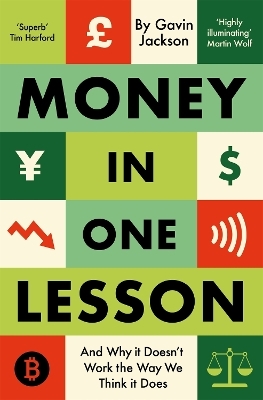
When the Money Runs Out
The End of Western Affluence
Seiten
2013
Yale University Press (Verlag)
978-0-300-19052-6 (ISBN)
Yale University Press (Verlag)
978-0-300-19052-6 (ISBN)
- Titel erscheint in neuer Auflage
- Artikel merken
Zu diesem Artikel existiert eine Nachauflage
An esteemed economist warns that Western societies’ economic expectations for the future are about to collide with reality
The Western world has experienced extraordinary economic progress throughout the last six decades, a prosperous period so extended that continuous economic growth has come to seem normal. But such an era of continuously rising living standards is a historical anomaly, economist Stephen D. King warns, and the current stagnation of Western economies threatens to reach crisis proportions in the not-so-distant future. Praised for the “dose of realism” he provided in his book Losing Control, King follows up in this volume with a plain-spoken assessment of where the West stands today. It’s not just the end of an age of affluence, he shows. We have made promises to ourselves that are achievable only through ongoing economic expansion. The future benefits we expect—pensions, healthcare, and social security, for example—may be larger than tomorrow’s resources. And if we reach that point, which promises will be broken and who will lose out? The lessons of history offer compelling evidence that political and social upheaval are often born of economic stagnation. King addresses these lessons with a multifaceted plan that involves painful—but necessary—steps toward a stable and just economic future.
The Western world has experienced extraordinary economic progress throughout the last six decades, a prosperous period so extended that continuous economic growth has come to seem normal. But such an era of continuously rising living standards is a historical anomaly, economist Stephen D. King warns, and the current stagnation of Western economies threatens to reach crisis proportions in the not-so-distant future. Praised for the “dose of realism” he provided in his book Losing Control, King follows up in this volume with a plain-spoken assessment of where the West stands today. It’s not just the end of an age of affluence, he shows. We have made promises to ourselves that are achievable only through ongoing economic expansion. The future benefits we expect—pensions, healthcare, and social security, for example—may be larger than tomorrow’s resources. And if we reach that point, which promises will be broken and who will lose out? The lessons of history offer compelling evidence that political and social upheaval are often born of economic stagnation. King addresses these lessons with a multifaceted plan that involves painful—but necessary—steps toward a stable and just economic future.
Stephen D. King is Group Chief Economist and Global Head of Economics and Asset Allocation research at HSBC. He lives in London.
| Erscheint lt. Verlag | 25.6.2013 |
|---|---|
| Sprache | englisch |
| Maße | 156 x 235 mm |
| Gewicht | 630 g |
| Themenwelt | Wirtschaft ► Volkswirtschaftslehre ► Finanzwissenschaft |
| Wirtschaft ► Volkswirtschaftslehre ► Makroökonomie | |
| Wirtschaft ► Volkswirtschaftslehre ► Ökonometrie | |
| ISBN-10 | 0-300-19052-2 / 0300190522 |
| ISBN-13 | 978-0-300-19052-6 / 9780300190526 |
| Zustand | Neuware |
| Haben Sie eine Frage zum Produkt? |
Mehr entdecken
aus dem Bereich
aus dem Bereich
eine Einführung in die Staatsfinanzen
Buch | Hardcover (2024)
Vahlen (Verlag)
39,80 €
New Foundations
Buch | Softcover (2022)
Edward Elgar Publishing Ltd (Verlag)
64,75 €
and why it doesn't work the way we think it does
Buch | Softcover (2023)
Pan Books (Verlag)
13,70 €



